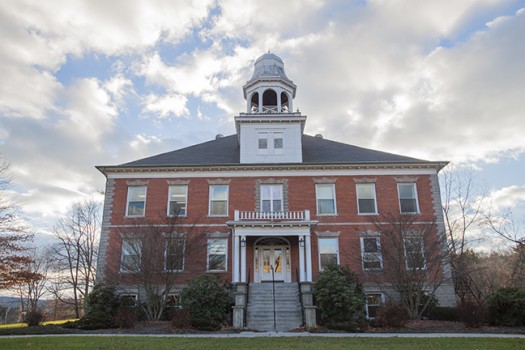In the fall of 2012, President Mullen created the diversity task force, seeking to understand the climate of Houghton’s campus and if necessary, make changes. A campus climate survey was sent out in the spring of 2013, and the diversity task force developed into a committee.
The diversity committee, meeting weekly, encompasses both faculty and students, all of which are volunteers. Dennis Stack, dean of students, defined its overarching goal, asserting that, “In a nutshell, we would like this campus to be welcoming for everybody.” Rob Pool, vice president of student life, noted that diversity can be defined in many ways, but the committee’s primary concerns are racial and ethnic. “Houghton is obviously a majority white campus,” said Stack, but affirmed that for students of other ethnicities, “we want this campus to feel as much at home for them as a white majority student.” Pool confirmed this goal, “Ideally, the student experience should be seamless.” He asserted that underrepresented and majority students should have “the exact same opportunities and bear burdens equally.”
With this intent in mind, the committee has sent out the past two surveys. Stack explained each survey “looks for trends at Houghton,” whether they are “really good or troubling.” Accordingly, the committee seeks to “encourage good things,” and address concerns. With the information from the first survey, the committee made nine recommendations to appeal to the board of trustees. The results of the most recent survey of spring 2015 will be analyzed by the committee once the spring semester has come to a close.
The nine recommendations have formed a large part of the committee’s initiatives. While Stack affirmed the board “liked all of them,” and thinks “the administration is very supportive of the direction we are proposing,” he defined finances as a major obstacle. He noted the “competing importances” for money on a college campus, ranging from upgrading residence halls to maintaining necessary numbers of faculty and staff.
In addition to budget concerns, the committee is aware of its need for a full time director. While the voluntary basis of the committee ensures dedication, the members have competing obligations according to their occupations. “We would love to have a full time person on campus to coordinate initiatives,” Pool explained. Committee member, Zina Teague ‘12, acknowledged that while the group has made “some progress,” a “key person to make changes” would be beneficial.
For the present, Teague affirms the diversity committee’s focus on “attainable goals.” Various focus groups, such as the international and African-American groups, have been created. Dennis Stack, also advocating “incremental” changes, commended the dining services for diversity related initiatives. Pool indicated that though some of the recommendations are “on hold,” others are indeed “in process.”
Although the diversity committee faces various challenges, its members firmly maintain its relevance. Teague asserted the universality of its goals, in that “this isn’t just for our diverse students, but for everyone. Everyone benefits for being culturally diverse.” Pool appealed to Houghton’s identity as a Christian institution, noting that the “bottom line” of the committee’s goal is “to be more Christ-like.”

